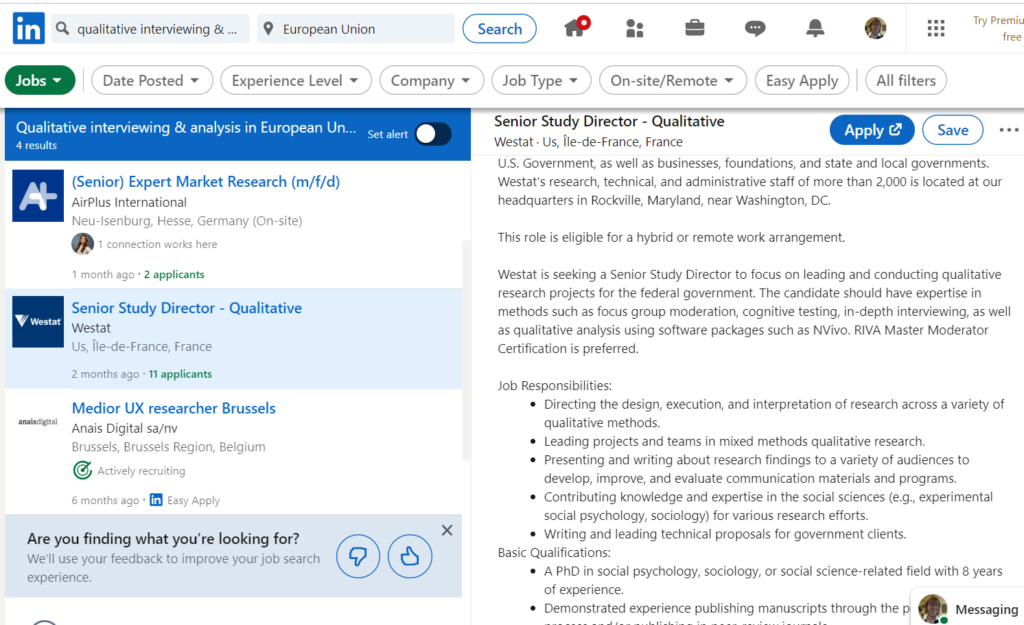
Hard skills, soft skills, transferable skills, technical skills, interpersonal skills.
Skills are what employers want from their prospective PhD employees. They’re not so interested in the details of your particular disciplinary research area, they want to know how you will apply your knowledge and skills to help them to innovate, create and develop new products, services, ideas and information.
Doctoral and postdoctoral researchers can sometimes find it difficult to recognise and even value the skills they’re developing during the course of their research. It’s easy to get complacent when you’re working in an environment where everyone has these high-level skills.
As part of my career planning workshops, I ask participants to brainstorm what they do and we collect them either on a classroom whiteboard or in a virtual space such as MURAL. The results can be colourful in terms of sticky notes, but also in terms of the wide variety and richness of the skills that emerge from this task, especially if the group consists of multi-disciplinary researchers (as in the image featured above).
Brainstorming your skills in a group exercise offers the advantage of being able to see how others identify and name theirs, as well as contributing into the mix yourself, having some fun discussions (baking is a popular skill amongst biologists), as well as coming away with an armoury of self-knowledge that can now be put to work as follows:
- CAREER DECISION-MAKING
Knowledge of your skills can help you to identify potential careers – choosing those roles that involve the skills you are good at and enjoy using will lead you into careers that are likely to be more fulfilling than those that consist of your least favourite skills. Of course, many other factors come into play, such as values, work culture, work:life balance, location etc., but if you choose a career area that uses your preferred skills, you can look around to find organisations within that sector that can offer you the work culture that suits these other needs. See my PhD Career Choice Indicator to find out more.

2. JOB SEEKING
Rather than using job titles or your disciplinary interests, such as physics, linguistics, engineering, to search for potential careers of interest, try using your skills instead (see above). If you plug your favourite skills into the search engine of job sites such as Indeed and Glassdoor, or social media platforms such as LinkedIn, you get a wide-ranging list of potential roles to examine. This strategy can help to broaden your job search horizons, since job titles can sometimes be mis-leading or, in reality, represent a multiplicity of different types of roles.

3. SELF-PRESENTATION
Employers want evidence of your capabilities, especially in your CV and at interview. Being able to explain how you have applied your skills to different situations, for example, solving a problem, resolving a conflict or creating a new line of thinking, is more valuable during an interview than describing, in depth, the situation itself. Most non-academic employers won’t need to utilise your PhD research knowledge itself, but they will want to be confident that you can apply your knowledge and skills to all sorts of new situations as they arise. If you can create an interesting story about how you have used your skills using the STAR technique, it’s bound to impress your interview panel.

So, why not try brainstorming your own skills and see if you can make them work for you …